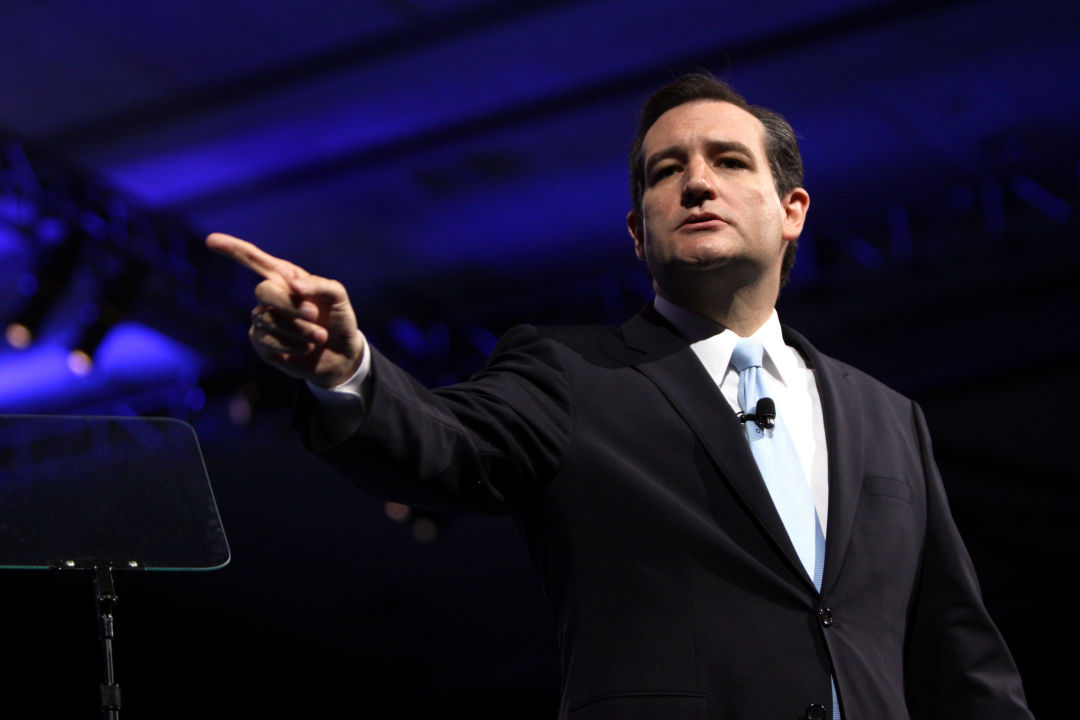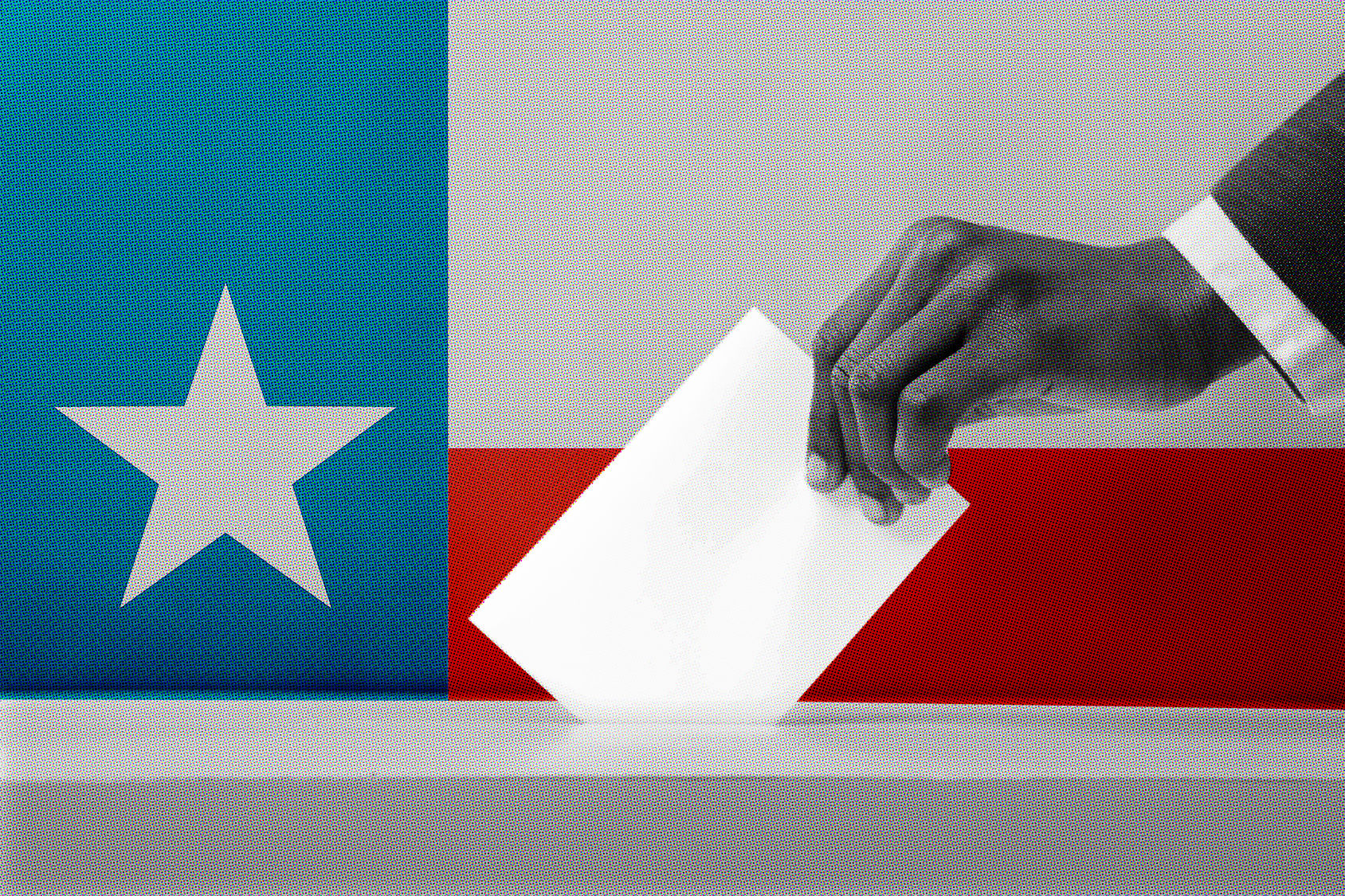Net Neutrality, Explained for Ted Cruz

U.S. Sen. Ted Cruz will not be fooled by your Jedi mind tricks.
Image: Gage Skidmore / Flickr
This weekend, U.S. Sen. Ted Cruz engaged in the particulars of the recent net neutrality debate with the actor who plays Luke Skywalker. It did not go well.
Mark Hamill kicked off the Twitter exchange by responding to a Daily Caller video featuring FCC Commissioner Ajit Pai as Pai explains "7 things you can still do on the Internet after net neutrality," which—thank God!—will include red-hot memes like the Harlem Shake. Hamill spoke out in response to the video's glib reference to Star Wars, which features Pai in a hood wielding a lightsaber.
Cute video Ajit "Aren't I Precious?" Pai 🤮-but you are profoundly unworthy 2 wield a lightsaber-A Jedi acts selflessly for the common man-NOT lie 2 enrich giant corporations. Btw-did you pay John Williams his royalty? @AjitPaiFCCorpShill #AJediYouAreNOT pic.twitter.com/SpIcOEySUY
— @HamillHimself (@HamillHimself) December 16, 2017
Cruz, who once performed a Darth Vader impression on the Senate floor—and yes, the Vader incident was entirely separate from Cruz's infamous Dr. Seuss reading in 2013—took this opportunity to fire back at the Hollywood actor.
.@HammillHimself Luke, I know Hollywood can be confusing, but it was Vader who supported govt power over everything said & done on the Internet. That's why giant corps (Google, Facebook, Netflix) supported the FCC power grab of net neutrality. Reject the dark side: Free the net! https://t.co/nARkMvIEYk
— Ted Cruz (@tedcruz) December 17, 2017
From there, the exchange proceeded as you'd expect. Hamill shot back at the senator for "smarm-splaining" and misspelling his name (there's only one "m"). Cruz quoted Yoda and stated "until 2015, the FCC had NO authority over Internet," which...isn't really true.
So, for the sake of our dear junior senator from Texas, let us indulge in a quick-and-dirty primer on the future of the internet.
What is net neutrality?
Americans currently experience net neutrality as the default. You pay your bill to an Internet Service Provider (ISP) like Comcast or AT&T each month, and you're free to scroll Facebook or stream re-runs of The X-Files to your heart's content; all internet traffic is treated equally.
Eliminating net neutrality opens the door to what people call "slow lanes." Think of this in terms of cable television or a toll road, with different services being packaged into separate tiers. There could be a social media package for $5, or, if you want to watch Netflix and Hulu, there could be another streaming video package for $10. More options could cost more money. Small businesses also worry ISPs might charge more for better, faster internet speeds, a move that would favor big business. An August open letter from the American Sustainable Business Council and others called the elimination of net neutrality "disastrous for the small business community."
Why are some in favor of eliminating net neutrality?
The biggest complaint is the perception that net neutrality is another version of burdensome regulation. FCC Commissioner Ajit Pai described it as "micromanaging business models," while Ted Cruz memorably dubbed it "Obamacare for the Intenet." Opponents also say that treating all network traffic equally will discourage investment in network infrastructure by lowering the profit incentive (if ISPs can't make money, the thinking goes, they're not going to spend billions laying fiber optic cables). Slower internet speeds could hamper innovation.
Is our dear Sen. Cruz correct? Has net neutrality only been around since 2015?
Yes and no. In 2015, the FCC voted to classify the internet as a public utility, with then-FCC Commissioner Tom Wheeler, a Democratic appointee, declaring the internet “too important to let broadband providers be the ones making the rules.” Net neutrality, as a term, was coined by Columbia professor Tim Wu in a 2002 essay, and the words slowly trickled into public discourse. In 2004, then-FCC Commissioner Michael Powell, a Republican appointee, articulated the basic tenets of net neutrality in a lofty speech titled "Four Internet Freedoms," reminiscent of FDR's "Four Freedoms" State of the Union address, but, you know, about the interwebs. The next year, the FCC fined a North Carolina ISP who attempted to block Vonage, the voice-over IP provider, setting the precedent for the agency's continued net neutrality enforcement. In 2008, Comcast got slapped for blocking BitTorrent traffic. As this excellent Wired overview explains, actions by Pai, the Trump-appointed commissioner, break with a long history of the FCC working toward open access.
Where does the debate stand in Washington?
Last week, the FCC voted unanimously to ditch the 2015 rules, which opens the door for ISPs to pursue fast lanes. Lawsuits have already been filed opposing the change, notably from New York Attorney General Eric Schneiderman. U.S. Senate minority leader Chuck Schumer (D-NY) hopes to reinstate the rules via legislation. States including California and Washington have stated they will try to address this via their own legislatures. As of now, the issue is up in the air, although it's already looking highly unlikely the ISP companies will do anything to reverse last week's decision. As Ars Technica reports, Comcast, one of the largest internet providers in Houston, has already deleted key segments of its promise to uphold net neutrality, including the statement "Comcast doesn't prioritize Internet traffic or create paid fast lanes."




